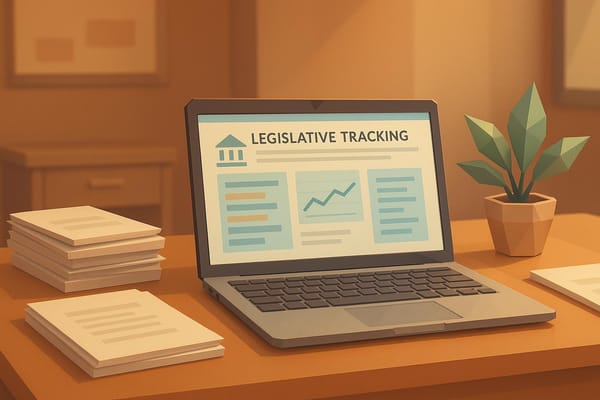Early Voting Bill for Alabama

The landscape of voting in Alabama is set to change dramatically with the introduction of House Bill 71, a pivotal piece of legislation that aims to establish early in-person voting. For years, Alabama has restricted voting before election day to absentee ballots, requiring specific excuses. This bill, however, seeks to expand voter access by allowing any qualified elector to cast a vote at designated early voting centers without needing an excuse. This significant shift towards early voting has the potential to increase voter participation and streamline the voting process. The bill outlines specific timeframes, locations, and rules for early voting, ensuring a consistent and fair experience for all eligible voters. This blog post delves into the details of HB71, examining its key provisions and potential impact on future elections.
A New Era of Early Voting
House Bill 71 ushers in a new era of electoral procedure for Alabama, specifically targeting general and special elections, though notably excluding municipal ones. Beginning with the November 2026 General Election, qualified voters will be able to cast their ballots in person prior to election day. This is a stark departure from current state law, which only permits absentee voting for those with valid excuses. This fundamental change empowers voters with more options and flexibility in when they choose to cast their votes. As noted in the bill, "qualified electors of this state may obtain and cast an in-person ballot in advance of election day, without excuse, at an early voting center." This marks a deliberate effort to remove barriers to voting and encourage broader participation in the democratic process.
The bill also specifies the timing of the early voting period. It mandates that the early voting period begins 17 days before election day, on a Saturday, and extends to the Thursday that is 5 days prior to election day. In terms of hours of operation, early voting centers must be open for at least eight continuous hours between 7:00 a.m. and 8:00 p.m. for at least two weekdays per week, with two days having hours extending until 8:00 p.m. Further, the early voting centers are required to be open between 10:00 a.m. and 7:00 p.m. on each Saturday during the early voting period. These structured hours are designed to accommodate the varied schedules of the working population and make voting more accessible.
The implications of this change are far-reaching, as this will not only reduce the need for strict adherence to absentee voting stipulations, but will also likely ease the burden on election day polling places. The goal is a more efficient and equitable voting process for all.
Establishing Early Voting Centers
The bill also lays out detailed guidelines on establishing and operating early voting centers. Each county is required to open at least one early voting center for every 100,000 residents, based on the most recent federal decennial census. The county commission has the authority to determine the exact location of each center, ensuring its accessibility to the public. The bill specifies that these locations can include county courthouses, government buildings, and even traditional election day polling sites, which provides flexibility and familiar options for the voters. According to the text, "An early voting center may be located in any branch of the county courthouse or courthouse annex, a government building generally accessible to the public, or a location that is used as an election day polling place." This ensures that the infrastructure for early voting is both functional and convenient.
Notably, for special elections, county commissions are allowed the flexibility to reduce the number of early voting centers if they deem that a lesser number would be sufficient for meeting voter needs. This shows a recognition that different elections may have varying requirements. The bill emphasizes that the geographical boundaries of these centers are to coincide with existing precinct boundaries, thereby maintaining electoral consistency and making the process easier for voters to navigate. This alignment with existing structures can minimize confusion and promote efficient voting practices.
Beyond location, the bill touches upon the staffing of the early voting centers, mandating the appointment of necessary election officials including at least one inspector and three clerks at each center. These officials are responsible for carrying out their duties in accordance to the state laws applicable on election day, with specific rules to be defined by the Secretary of State. This ensures a consistent and trustworthy voting experience.
Voting Process and Security
The procedures for voting at an early voting center are designed to mirror those in place for in-person voting on election day, which is intended to ensure consistency and familiarity. Each early voting center is required to be equipped with at least two voting machines, providing adequate access for voters. Crucially, the bill mandates that all qualified voters who are in line at the time of closing are to be allowed to cast their votes. "When the time arrives for closing the early voting centers, all qualified voters who are waiting in line to vote shall be permitted by the election officer to cast their vote," confirms the bill's commitment to ensuring all votes are counted.
Upon daily closing of each early voting center, the election officers are tasked with securing all ballots cast, poll lists, and voting materials. This is in accordance with rules defined by the Secretary of State, thereby reinforcing the integrity of the voting process. This measure also is meant to safeguard the voting process from any kind of tampering or manipulation. The bill also states that, “the election officers shall secure all ballots cast, the poll lists maintained at the location, and all other voting materials, whether used or unused, as provided by rules adopted by the Secretary of State.” This highlights the importance placed on maintaining the security and transparency of early voting.
Further, the bill directs the Secretary of State to formulate rules that ensure no elector votes more than once. This provision is critical to maintaining the one-person, one-vote principle, as well as bolstering voter confidence. The rule implementation also will be part of creating a system that is efficient and respectful of the voters' privacy.
Communication and Transparency
Effective communication is a key aspect of HB71. The bill mandates that each county commission is required to develop a communication plan to inform voters of the opportunity to vote early. The plan can utilize any media outlet, including social media, the official county website, and any other relevant avenue. This multi-pronged approach is designed to ensure that all eligible voters are aware of early voting opportunities. The aim is to reach all corners of the county with precise information, such as designated early voting centers and their hours of operation. The bill emphasizes that the plan will "publicize the designation of voting precincts to assigned early voting centers, along with the location, date, and hours of operation of each early voting center.”
In addition, the bill also highlights the need for seamless information sharing by tasking each county to provide the Secretary of State's Office with polling information for early voting. In turn, the Secretary of State will integrate this data into their voter information poll locator website. This integration is designed to make it as easy as possible for voters to find the locations, times, and other details related to early voting. This would be helpful in the general goal of ensuring that all information is easy to access and is readily available to the public.
The overall emphasis on communication and transparency is aimed at ensuring that voters have the information they need to participate in early voting, thereby making it a successful addition to the voting options available in the state.
Financial and Regulatory Aspects
The bill also addresses the financial implications of establishing early voting. All expenses and costs that are incurred to comply with this new law are to be reimbursed in accordance with the existing financial code related to elections in Alabama. “All expenses and costs incurred to comply with this section shall be reimbursed in accordance with Article 1 of Chapter 16 of Title 17, Code of Alabama 1975,” the bill states, clarifying how funding will be handled. This section ensures that the financial burden on counties is addressed, and this will help facilitate a smooth transition into this new approach to voting. Additionally, the bill ensures that all aspects of early voting are compliant with existing state financial guidelines and regulations.
A very important aspect of the bill is its call for the Secretary of State to adopt necessary rules and regulations for the implementation of the early voting system. These rules are supposed to ensure that the early voting ballots are counted and canvassed as if they were cast on election day and will also include stipulations for an efficient and fair voting process that protects voter privacy. Furthermore, there is a focus to ensure that voters only cast one ballot per election, regardless of when they are voting. This level of attention to detail and regulatory oversight is key to ensuring a credible and reliable election process.
The bill’s financial and regulatory framework is vital for ensuring that the transition to early voting is seamless and effective, and that all processes are fair, transparent, and compliant with state laws and regulations.
Looking Forward
House Bill 71 represents a significant step forward in modernizing election practices in Alabama. By establishing a process for in-person early voting, the state is removing barriers to voting and making it easier for eligible citizens to cast their ballots. The bill's focus on transparency, accessibility, and security underscores its commitment to fair and efficient elections. The detailed provisions regarding center locations, hours of operation, and voting procedures will ensure that the system is both robust and user-friendly. The emphasis on communication and public awareness is a significant step toward ensuring that eligible voters have access to all voting options.
The bill is set to go into effect on July 1, 2025, giving counties and the Secretary of State time to prepare for the November 2026 General Election, when early voting will first be implemented. The impact of this new law is anticipated to increase voter turnout and improve the overall voting experience. As Alabama moves towards this new approach to elections, it is hoped that the processes will be continually reviewed and refined to meet the evolving needs of the electorate.
In conclusion, HB71 is more than just an election reform measure; it’s a move towards more inclusive and accessible democracy. The bill’s various provisions are designed to uphold the integrity of elections while also promoting greater participation among all eligible voters in Alabama. This is an important shift that will greatly affect how Alabamians cast their ballots for years to come.




